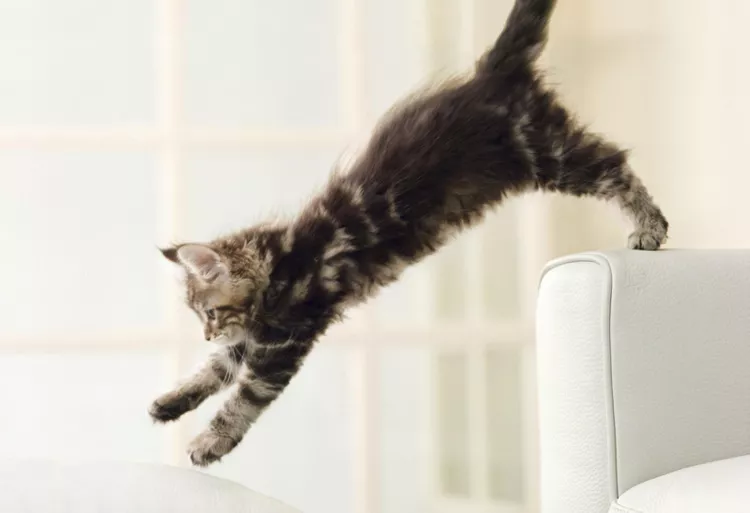
A cat acting crazy may run around the house or get a nightly burst of energy, complete with a chorus of meows. A "crazy" cat can be entertaining to watch, but the behavior could veer into destructiveness, with the cat inadvertently knocking things over, and an increased likelihood that someone gets bitten.
The cat may just be embracing its nocturnal or predatory instinct, in which case there are things you can do to support it and minimize the risk of chaos or bodily harm, or the wild behavior could also be a sign that something is wrong with their health.
No matter the breed, all cats have moments when they run across a room, meow like crazy, and act as if they're on a racetrack being chased. They dart about, faster and faster, looking all over the place, and then suddenly stop in their tracks.
This wild behavior is sometimes referred to as the "midnight crazies" when it happens at night. Your cat may entertain itself with wild activity or jump on your bed to paw at your feet, elbows, hair, or face to get you to join in the fun. The reasons for this wild and sometimes amusing behavior vary.
Cats are natural predators, and domestic cats retain this instinct to a certain extent. At times, a cat that's acting crazy may actually be exhibiting hunting behaviors, fighting maneuvers, or escape techniques.
A house cat that doesn't have to hunt for its food still needs to burn its pent-up energy, and it may be in the form of what appears to be crazy behavior. Toys, such as catnip mice, laser pointers, food puzzles, and feather wands encourage a cat to use its instincts to grab, chase, and jump. This exercise is especially important for your cat if it doesn't spend time outdoors.
Another reason for your cat’s crazy behavior could be that some cats are nocturnal and become more active at night. If a cat isn't getting enough exercise during the day, it may act especially crazy.
Many domestic cats spend their days alone indoors while their people are at work. When the cat's person comes home in the evening, the cat may be very active and want to play. If it has no outlet for all this energy, the cat may exhibit some crazy behavior. Kittens are especially energetic.
If you have an older cat, it may be acting crazy because of some cognitive dysfunction or senility. As a pet ages, its brain may start functioning differently and cause it to exhibit strange behavior for no apparent reason.
Sometimes a cat acts crazy and looks as if something is biting it sporadically because it has fleas. Particularly when meowing is involved, your cat could be hypersensitive to flea bites or simply have an itch in a place it can't reach.
If you suspect your cat has fleas, treat all the furry animals in the household with a prescription product specifically for cats, designed to kill and prevent fleas. You should also see your vet to determine if there are any secondary skin infections or allergies from the fleas that need to be treated. You'll also need to treat the environment by vacuuming, doing laundry, and using area sprays or flea bombs if recommended by your vet. Once the fleas are gone, your cat should stop this behavior.
Feline hyperesthesia syndrome (FHS) is a rare reason why a cat may act crazy, although it affects mature cats most often and the cause is unknown.
Discuss the possibility of FHS with your veterinarian if you notice that:
Sometimes it's difficult to know exactly what caused your cat to go a little wild all of a sudden. Frankly, cats are hard to interpret! Many people understand basic dog vocalizations and behaviors but don't recognize basic cat behaviors.
Dogs have expressive faces and body language that's pretty easy to accurately interpret. They wag their tails, make different noises to alert others of their moods, and often follow basic commands to please their people. Cats, on the other hand, are usually known more for their emotional vagueness and standoffish behavior. There is, however, a growing belief that cats are just as expressive as dogs. The problem is that people simply misunderstand or don’t see what or how their cats are trying to communicate.
When it comes to cats, meows and tail waves can mean a number of different things, depending on the situation. With each purr, yowl, or even blink, your feline is actually trying to communicate with you. The problem is figuring out what it's saying.
Experts say there’s something to gain from these attempts at communication. For instance, learning to read your cat's body language can strengthen your bond with it and allow you to become more effective at responding appropriately to its needs.
Every cat is different, so the best thing you can do to start is to simply observe your cat. Take mental notes of the environment and conditions present when the "crazy" behavior occurs. Pay attention to body language, vocalizations, time of day, and what your cat just did. Did your kitty just eat, groom, or scratch its back? Was there a playful meow before your cat dashed into the other room?
With time and careful observation, you'll likely begin to piece together the triggers of your cat's craziness in various situations. This will help you to understand what's normal for your cat and when any unusual behavior could be a symptom of a medical issue worth investigating with your vet.
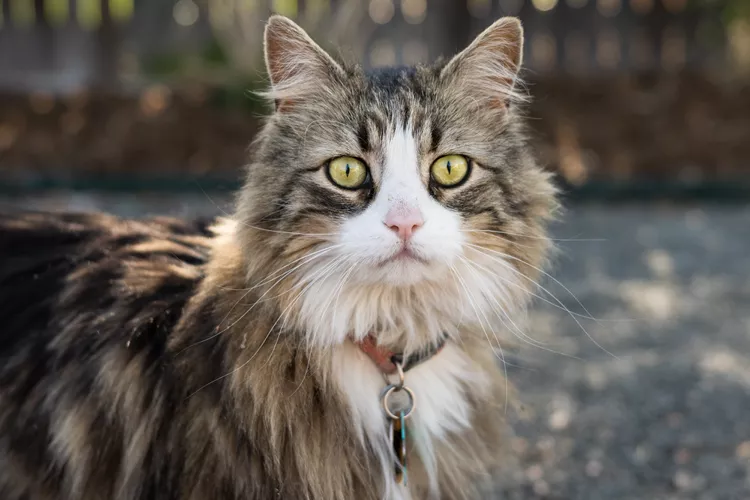
75 Unisex Cat Names
Our gender neutral cat names perfect for your feline friend, with a diverse selection of fun and inclusive options to fit your pet's disposition.
Why Does My Cat Stink?
Is your cat stinky? Find out about the causes of bad odors in cats and when it is something to be concerned about. Learn how to help your stinky cat.
Signs of Rabies in Cats
Rabies is a fatal and contagious virus that can affect cats. Learn about the signs of rabies in cats and what to do about them.
Can Cats Eat Dog Food?
Can cats eat dog food? In small amounts, it's unlikely to be a problem, but long-term feeding of dog food to cats can cause health issues and malnutrition.
Exploring the Different Types of Pet-Friendly Beaches
Are you looking for pet-friendly beaches? Learn about the different types of pet-friendly beaches, their locations, and tips for visiting them with your pet.
Pulled Muscles in Dogs
A pulled muscle is one of the most common injuries seen in dogs. What can you do if your dog pulls a muscle and how can you prevent it?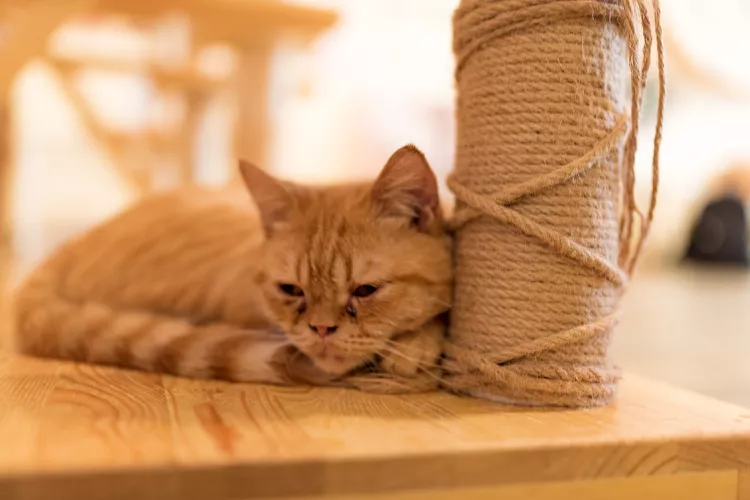
Fibrosarcoma in Cats
Fibrosarcomas are potentially fatal soft tissue tumors that can occur in cats. Learn the causes, treatment, and prevention.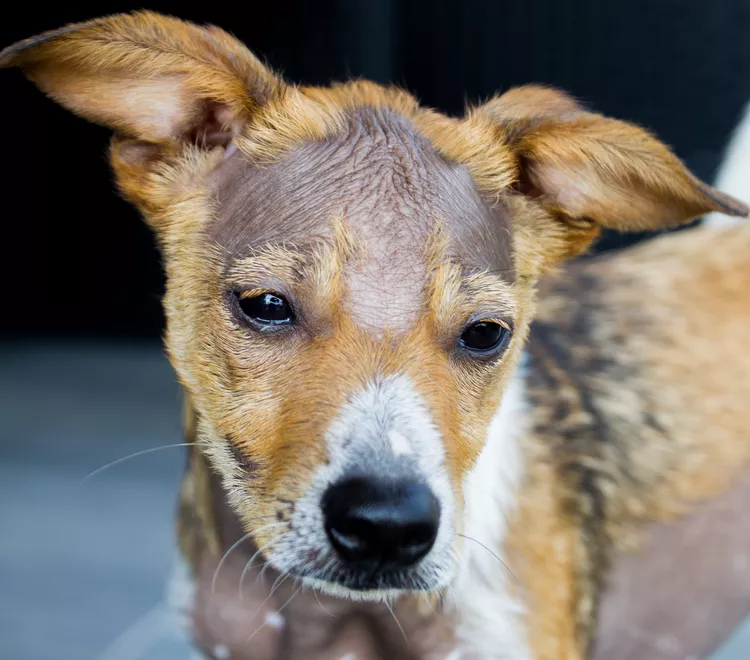
Alopecia in Dogs
Alopecia leads to hair loss and bald spots in dogs. Some breeds may be more at risk. Learn common causes, treatment, and prevention of dog alopecia.
Is Acetaminophen Safe for Dogs?
Acetaminophen is used by humans for pain and fever relief, but is it safe for dogs? Here's what you need to know before giving your dog acetaminophen.
Can Dogs Eat Almonds? Understanding the Risks and Guidelines
Can dogs eat almonds? While a couple likely won't hurt, it's best to avoid feeding your dog this nut. Learn the risks here.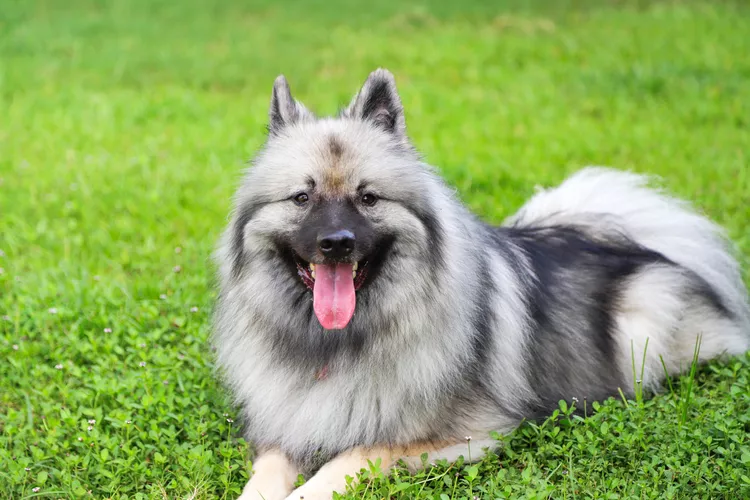
Keeshond: Dog Breed Characteristics & Care
Learn about the keeshond dog, also known as the Dutch Barge Dog. This fluffy spitz breed was bred to guard, but also makes a friendly companion.
Is Rosemary Safe for Dogs?
Rosemary is used both for cooking and as a supplement with many reported health benefits in people, so you may be wondering if it is safe to give to your dog. Rosemary is considered non-toxic for dogs but with some caveats.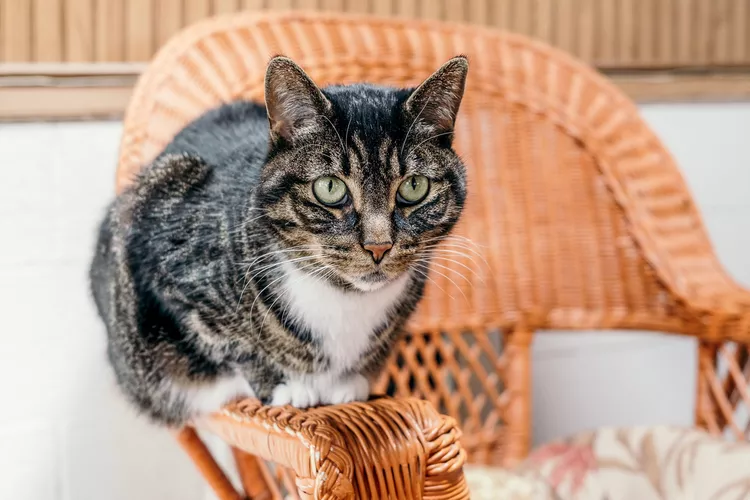
7 Hybrid Cats Breeds
Hybrid cat breeds can make appealing pets since they look more exotic than domestic house cats, but they aren't for everyone.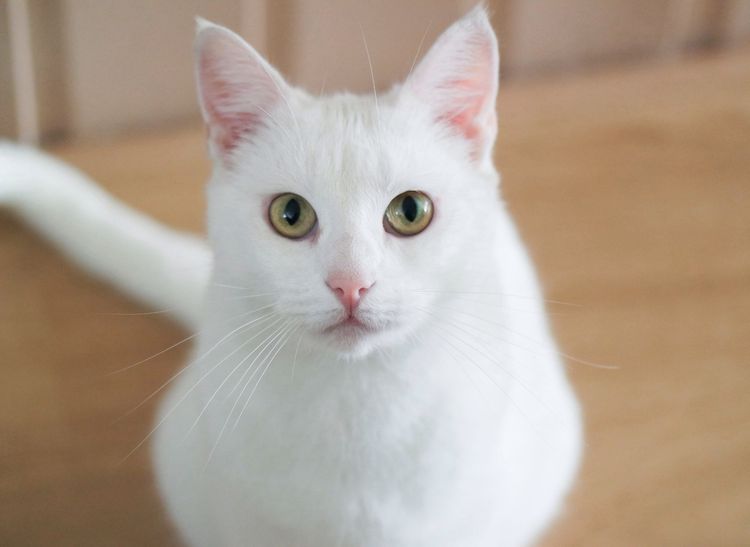
The Best White Cat Breeds to Keep as Pets
Several breeds can result in white cats with long or short hair. Find out the pros and cons of these white cat breeds.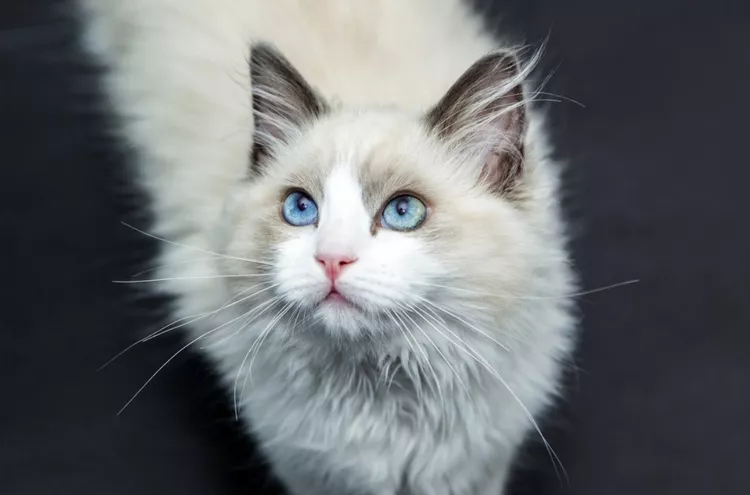
11 Cute Pictures of Ragdoll Cats
Ragdoll cats are known for their beautiful coats and bright, blue eyes. Learn all about the breed, and check out some cute pictures here.
7 Reasons Why Your Cat Eats Paper, and How to Stop It
Is your cat eating paper? Learn why your cat is doing this, and find out how to put a stop to it.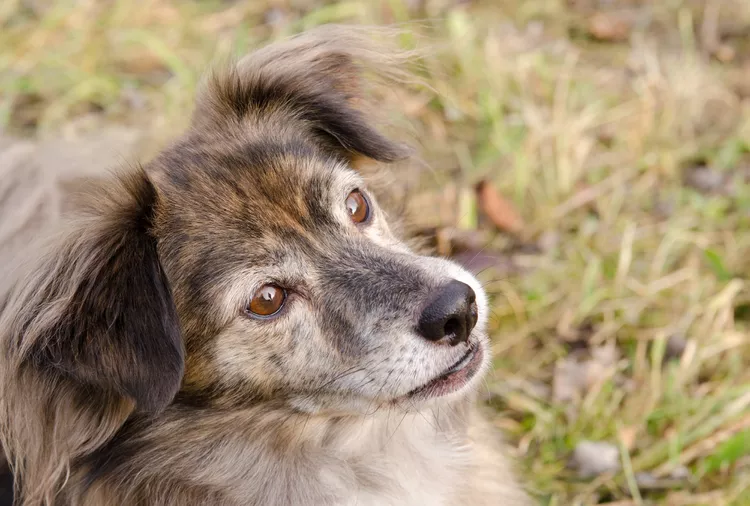
Feist: Dog Breed Characteristics & Care
Feists are small, short-haired dogs developed to hunt squirrels and catch vermin. These high-energy, affectionate pooches make great companion animals.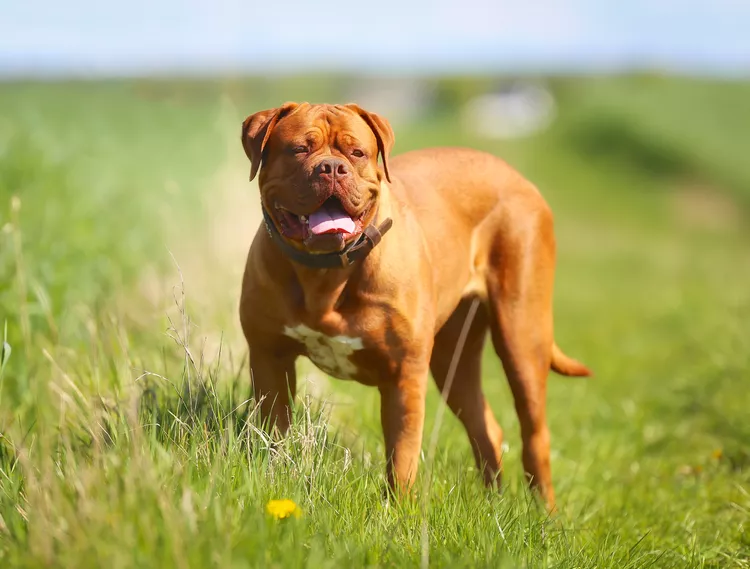
Dogue de Bordeaux (French Mastiff): Dog Breed Characteristics & Care
Learn about the Dogue de Bordeaux, also called the French mastiff. Although large and muscular, they’re known for their calm and gentle personality.
How to Stop Your Dog From Fearing Men
Many dogs have a phobia of men. Learn how to help your dog overcome its fear through desensitization and training while keeping everyone safe.
Why Dogs Eat Poop and How to Stop Them
Is your dog eating poop? Some dogs do this because of stress or illness. Learn how to prevent stool eating, or coprophagia, in dogs.